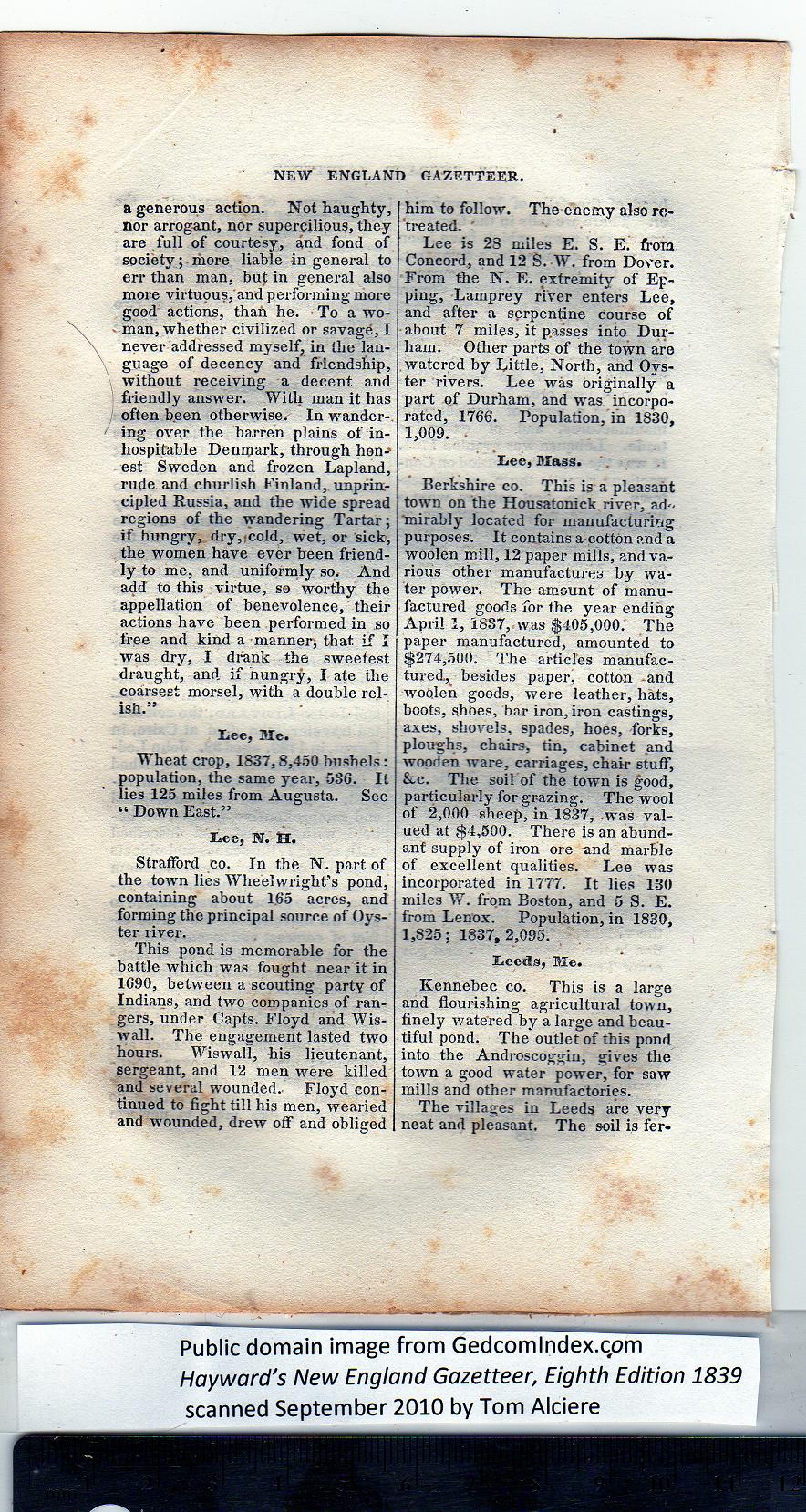|
a generous action. Not haughty,
nor arrogant, nor supercilious, they
are full of courtesy, and fond of
society; more liable in general to
err than man, hut in general also
more virtuous, and performing more
good actions, than he. To a wo-
man, whether civilized or savage, I
never addressed myself, in the lan-
guage of decency and friendship,
without receiving a decent and
friendly answer. With man it has
often been otherwise. In wander-
ing over the barren plains of in-
hospitable Denmark, through hon->
est Sweden and frozen Lapland,
rude and churlish Finland, unprin-
cipled Russia, and the wide spread
regions of the wandering Tartar;
if hungry, dry,mold, wet, or sick,
the women have ever been friend-
ly to me, and uniformly so. And
add to this virtue, so worthy the
appellation of benevolence, 'their
actions have been performed in so
free and kind a manner, that if I
was dry, I drank the sweetest
draught, and, if hungry, I ate the
coarsest morsel, with a double rel-
ish.”
Lee, Me.
Wheat crop, 1837,8,450 bushels:
population, the same year, 536. It
lies 125 miles from Augusta. See
“ Down East.”
Lee, N. R.
Strafford co. In the N. part of
the town lies Wheelwright’s pond,
containing about 16*5 acres, and
forming the principal source of Oys-
ter river.
This pond is memorable for the
battle which was fought near it in
1690, between a scouting party of
Indians, and two companies of ran-
gers, under Capts. Floyd and Wis-
wall. The engagement lasted two
hours. Wiswall, his lieutenant,
sergeant, and 12 men were killed
and several wounded. Floyd con-
tinued to fight till his men, wearied
and wounded, drew off and obliged
him to follow. The enemy also re-
treated. |
Lee is 23 miles E. S. E. from
Concord, and 12 S. W. from Dover.
From the N. E. extremity of Ep-
ping, Lamprey river enters Lee,
and after a serpentine course of
about 7 miles, it passes into Dur-
ham. Other parts of the town are
watered by Little, North, and Oys-
ter rivers. Lee was originally a
part of Durham, and was incorpo-
rated, 1766. Population, in 1830,
1,009. ■
Lee, Mass.
Berkshire co. This is a pleasant
town on the Housatonick river, ad"
Tnirably located for manufacturing
purposes. It contains a cotton and a
woolen mill, 12 paper mills, and va-
rious other manufactures by wa-
ter power. The amount of manu-
factured goods for the year ending
April I, 1837, was $405,000. The
paper manufactured, amounted to
$274,500. The articles manufac-
tured^ besides paper, cotton -and
woolen goods, were leather, hats,
boots, shoes, bar iron, iron castings,
axes, shovels, spades, hoes, forks,
ploughs, chairs, tin, cabinet and
wooden ware, carriages, chair stuff,
&.c. The soil of the town is good,
particularly for grazing. The wool
of 2,000 sheep, in 1837, .was val-
ued at $4,500. There is an abund-
ant supply of iron ore and marble
of excellent qualities. Lee was
incorporated in 1777. It lies 130
miles W. from Boston, and 5 S. E.
from Lenox. Population, in 1880,
1,825; 1837,2,095.
Leeds, Me.
Kennebec co. This is a large
and flourishing agricultural town,
finely watered by a large and beau-
tiful pond. The outlet of this pond
into the Androscoggin, gives the
town a good water power, for saw
mills and other manufactories.
The villages in Leeds are very
neat and pleasant. The soil is fer- |
